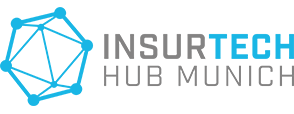Expert Round Table: Four Heads of Innovation from InsurTech Hub Munich’s board companies discuss how the corona crisis will change the way we work and communicate and which role innovation will play in the near future
In response to the corona crisis individuals and corporations are currently facing measures unprecedented in modern history. Social life has come to an abrupt halt and many businesses need to stay closed. Service oriented industries like insurance are privileged to be able to maintain operation. Thousands of employees have switched to home office from one day to the next. “Two months ago this would have been unthinkable”, says Generali board member Ben Kalteier and adds: “Two years ago it would have been impossible”.
InsurTech Hub Munich has invited four Heads of Innovation from our partner companies to assess the momentary situation and what’s lying ahead. At the virtual round table (a video conference, as usual these days) we discussed how we will communicate with each other and our customers in the future, how work life and collaboration might evolve and how innovative ideas and action could help make a silver lining visible.
Participants:
Tom Van den Brulle (Global Head of Innovation, Munich Re / Chairman of the ITHM Board)
Benedikt Kalteier (Head of Strategy and Board member, Generali Deutschland Versicherung AG / Member of the ITHM Board)
Julia Pühlhorn (Innovation Manager, NÜRNBERGER Versicherung)
Johannes Wagner (Head of Startup Cooperation, Versicherungskammer Bayern / Member of the ITHM Board)
Markus Walter (Moderator / Director Media & Communications, ITHM)

Tom Van den Brulle 
Julia Pühlhorn 
Johannes Wagner 
Benedikt Kalteier
The business model of insurance is to expect the worst and calculate corresponding risks. Was the industry prepared for a crisis like the one we’re experiencing at the moment?
Tom Van den Brulle: We’ve been living in a ‘new normal’ for some years now, having witnessed markets crash during the 2008 financial crisis or the dot.com bust of the early 2000s. We have endured terrorist attacks, election surprises, huge natural catastrophes and, yes, of course, pandemics are a risk scenario that’s in our books as well. Still the dimension of the COVID-19 crisis, and even more so the measures taken all over the globe, are unprecedented. But it’s also unprecedented how qualified we can react to that.
Julia Pühlhorn: Exactly! Our companies did not hesitate to send employees to work from home, improving existing communications channels and collaboration tools or setting up new ones from scratch. Insurance is a customer-centric business and notably in times like these it is highly important to be available without major disruptions.
Benedikt Kalteier: Two months ago, the versatility we witness now would have been unthinkable. And two years ago, it would simply not have been possible. Digitization, disputed or even dreaded by some, is proving to be a massive enabler. What’s working – or not working – today can be traced back directly to the transformation efforts we’ve taken during the past few years.
The collective experience of the crisis, the need to react instantly massively sped things up. We’ve skipped some lengthy implementation processes to keep up business. Though it sure is straining and stretching the limits of everyone involved, I have to say that I also feel that the ‘trial and error’ and ‘quick fix’ mode we’re operating in at the moment is a significant motivation for those who dare to innovate.
Do it like a startup: Work agile, constantly come up with new ideas and put them to the test, dare to fail. Is this how big corporations like yours will continue to operate once the crisis is over?
Johannes Wagner: We definitely have to take advantage of the current openness for innovation. Let’s be wary not to turn back the clocks once we return to business as regular. Still it would be starry-eyed not to notice that a digital divide becomes visible: Not everyone – not every coworker or business partner and not every customer – is equally well prepared for this sudden breakthrough of digital tools and processes. Ex-post measures will be necessary to not leave anyone behind – and to keep up the belief in digitization as an enabler. Innovation also requires education!
Julia Pühlhorn: That’s true! As I mentioned before, our IT departments have done an amazing job enabling employees to work from home (WFH). But that’s only the tech part of the story. We also have to look at the individuals involved. Home Office requires new levels of trust and autonomy in decision-making, the establishment of new communications habits. I definitely think that here we can learn from what smaller and more agile units like startups are already practicing. But we also need to share our experiences and learnings across company borders. It’s in difficult situations like these that you really value a cross-industry network like InsurTech Hub Munich!

The current situation is special: Many of us have to oversee or home-school kids, care for elderly and sick relatives and fulfill our jobs all at the same time. This will not go on forever, but it makes visible some of the general challenges of remote work. You can’t simply articulate your worries over lunch or smoothen out misunderstandings and irritations during a chat next to the coffee maker, if your coworkers and boss are miles away. And the same applies to interactions with customers. After all insurance is a people business. We will see a steep learning curve in how to handle these issues.
Tom Van den Brulle: Good leadership now means to put a lot of confidence in your team members. As Ben has mentioned, it’s a singular moment where we can and must try new methods. Some long-serving routines will automatically be put to the test. At the same time we have to provide guidance and assistance where needed. Considering the motivation and mental wellbeing of coworkers will become a more important task for managers and HR departments.
Do you think that there will be an openness to discuss topics like these? The economic implications of the corona crisis will be massive. Some argue, that investments might be withheld or relocated…
Benedikt Kalteier: Deinvesting in innovation – be it technical, process- or product-related or HR topics – would be fatal. It would mean standstill, and that’s the worst thing that can happen in times of turmoil. Instead we need to demonstrate that new solutions mean new opportunities. Repeating past mistakes – by deprioritizing innovation – will only make you more vulnerable during the next crisis. I clearly see the tendency to leverage on the experiences of this crisis to drive innovation.
Johannes Wagner: Just take a look at a completely different sector: Anyone who has kids will have noticed that in Germany educational facilities – as well as parents – have dodged online learning options for a long time. There are plenty of great solutions and providers out there, but we were poorly prepared to take advantage of that during lockdown. Translate this to the private sector and you will sense that it is absolutely necessary that business continuity plans be ameliorated. For almost any industry tech will play a significant role in that, for most partnering up with startups will make sense. And, no, we can’t afford to not put efforts and money into that!

All eyes are on the health sector now as the world is desperately looking for treatments and vaccines to combat COVID-19. In this industry, a ‘division of work’ between entrepreneurs and corporations is driving the best and fastest results: Startups do a lot of groundbreaking research, the incumbents make use of their development and distributions power…
Julia Pühlhorn: First thing I currently feel regarding the health sector is humbleness. There’s no words for what nurses, doctors, scientists are accomplishing to fight the corona virus! And it indeed is impressive to witness live collaboration for the common cause. Can we translate this to the insurance industry? Yes, I think so. We’re a data heavy industry, our main ‘product’ is virtual. Artificial Intelligence or Big Data, for example, are extremely relevant for us and we know that innovation in these fields will happen externally to a large degree. So partnering up is essential.
Johannes Wagner: Insurance is an universal industry, it applies to basically any aspect of our lifes. Same is true for insurtech, which in fact is an umbrella for solutions from fields so diverse as health tech, mobile, cybersecurity, industry 4.0… You name it! This said it is clear that we will follow the path we’re already on, driving collaboration with startups. We can profit from their inventiveness and speedy processes, they can profit from our penetration of the market, our customers’ loyalty and our financial strength.
Tom Van den Brulle: To give you one topical example: The initiative “Give A Breath” which Munich Re has initiated together with Fraunhofer Gesellschaft to incentivize new 3D designs for ventilation equipment for corona patients, relies on this very idea. The most capable minds from around the globe toss in their ideas – and we leverage the most promising ones to get the attention and the funding needed. This, by the way, is exactly how the ITHM operates – and why all of us are part of this powerful network!
Interview: Markus Walter





